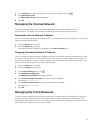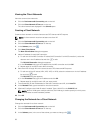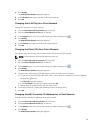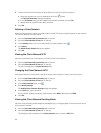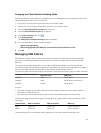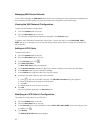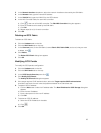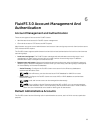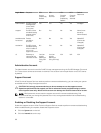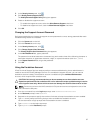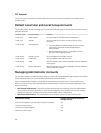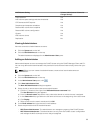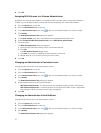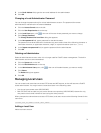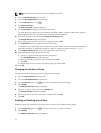
6
FluidFS 3.0 Account Management And
Authentication
Account Management and Authentication
There are two types of access to the FluidFS cluster:
• Administrator‐level access for FluidFS cluster management
• Client‐level access to CIFS shares and NFS exports
Administrator accounts control administrator‐level access. Users and groups control client‐level access to
CIFS shares and NFS exports.
The FluidFS cluster supports administrator‐level and client‐level authentication for both local and remote
users and groups:
• Local users and groups: The FluidFS cluster manages and authenticates users and groups. Local
management is useful when you have only a limited number of users and groups. In addition,
authentication does not depend on external servers.
• Remote users and groups: Manage and authenticate users and groups using the following external
database types. Remote management is useful when you have many users and groups, but depends
on the availability of the external database.
– Active Directory: Configure the FluidFS cluster to access an Active Directory database to
authenticate Windows users.
NOTE: Active Directory can also be used as an LDAP database for UNIX/Linux users.
– NIS or LDAP: Configure the FluidFS cluster to access a NIS or LDAP database to authenticate
UNIX/Linux users.
NOTE: Local and remote users can be managed simultaneously.
NOTE: If you configure Active Directory and either NIS or LDAP, you can set up mappings
between the Windows users in Active Directory and the UNIX/Linux users in LDAP or NIS to
allow one set of credentials to be used for both types of data access.
Default Administrative Accounts
The FluidFS cluster has the following built‐in administrative accounts, each of which serves a particular
purpose.
65



